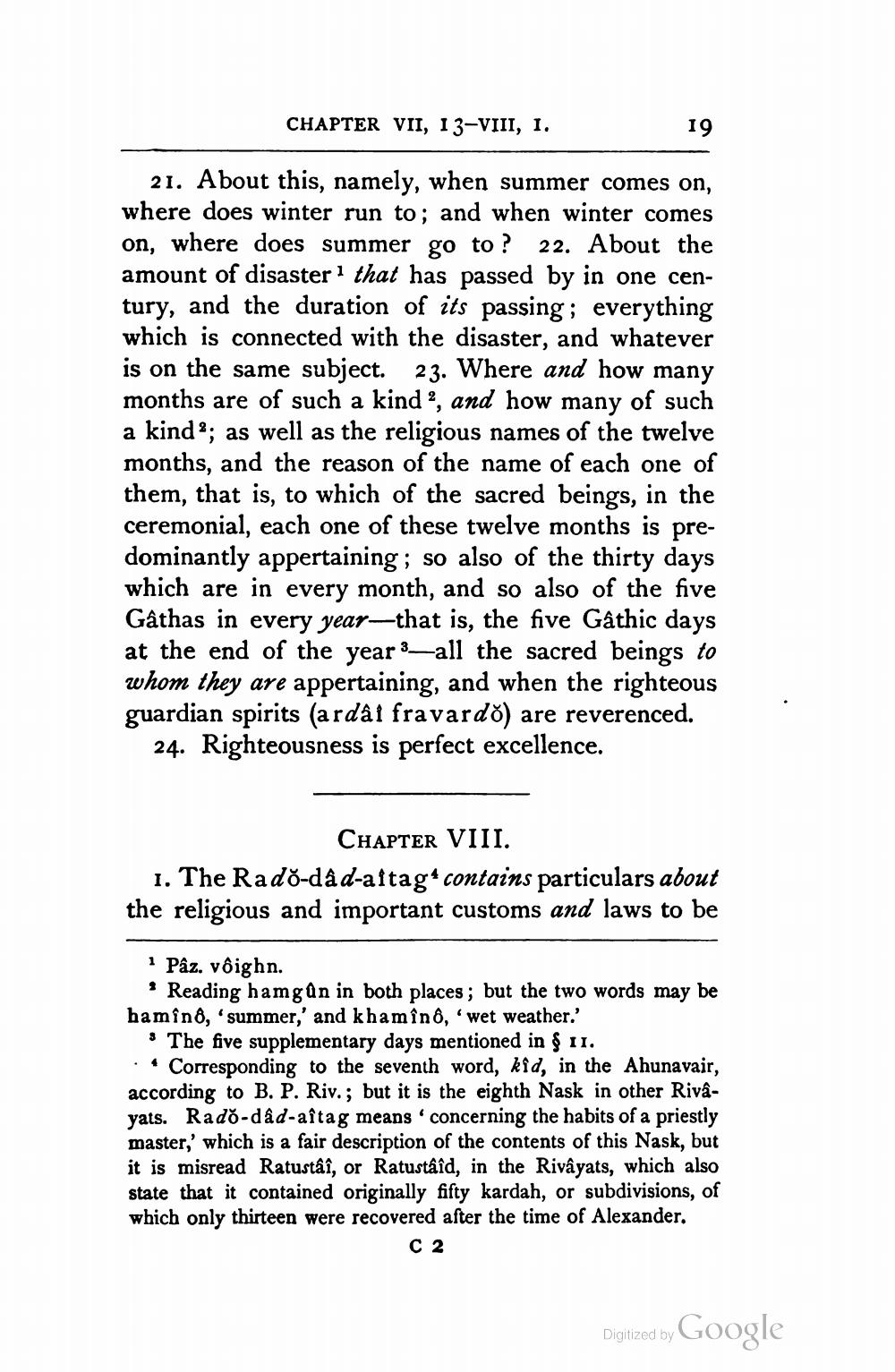________________
CHAPTER VII, 13-VIII, I.
19
21. About this, namely, when summer comes on, where does winter run to; and when winter comes on, where does summer go to ? 22. About the amount of disaster that has passed by in one century, and the duration of its passing ; everything which is connected with the disaster, and whatever is on the same subject. 23. Where and how many months are of such a kind ?, and how many of such a kind ; as well as the religious names of the twelve months, and the reason of the name of each one of them, that is, to which of the sacred beings, in the ceremonial, each one of these twelve months is predominantly appertaining ; so also of the thirty days which are in every month, and so also of the five Gâthas in every year—that is, the five Gâthic days at the end of the year all the sacred beings to whom they are appertaining, and when the righteous guardian spirits (ardâi fravardo) are reverenced.
24. Righteousness is perfect excellence.
CHAPTER VIII. 1. The Rado-dad-aftag: contains particulars about the religious and important customs and laws to be
• Pậz. vôighn.
* Reading hamgûn in both places; but the two words may be hamino, summer,' and kham înd, wet weather.'
The five supplementary days mentioned in $11. . • Corresponding to the seventh word, kid, in the Ahunavair, according to B. P. Riv.; but it is the eighth Nask in other Rivayats. Rado-dad-aîtag means concerning the habits of a priestly master,' which is a fair description of the contents of this Nask, but it is misread Ratustai, or Ratustâîd, in the Rivâyats, which also state that it contained originally fifty kardah, or subdivisions, of which only thirteen were recovered after the time of Alexander.
C2
Digitized by Google




